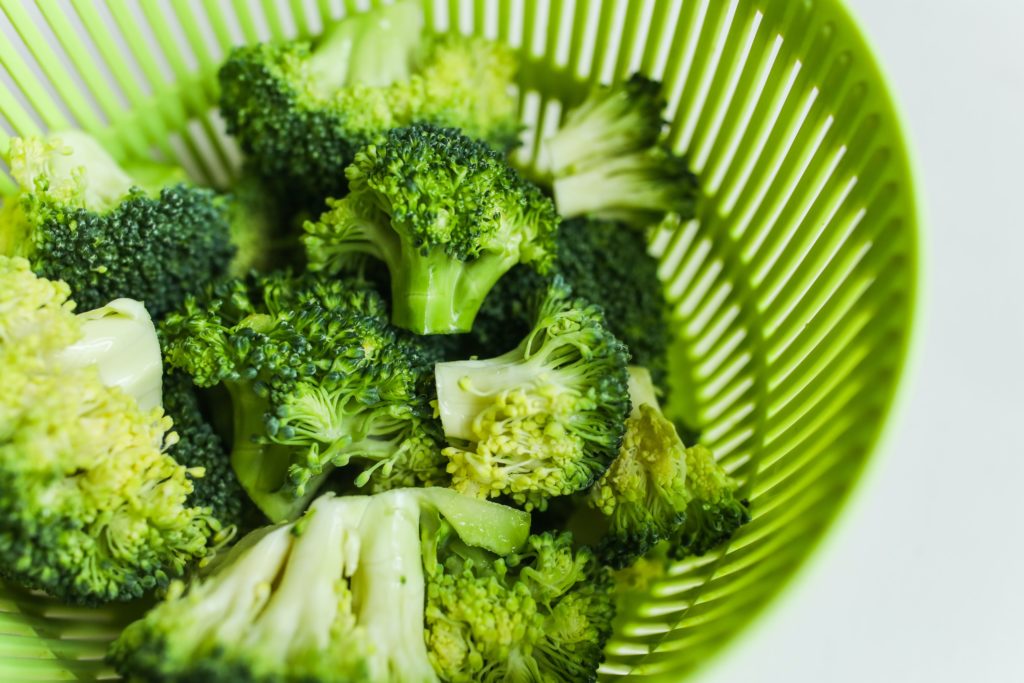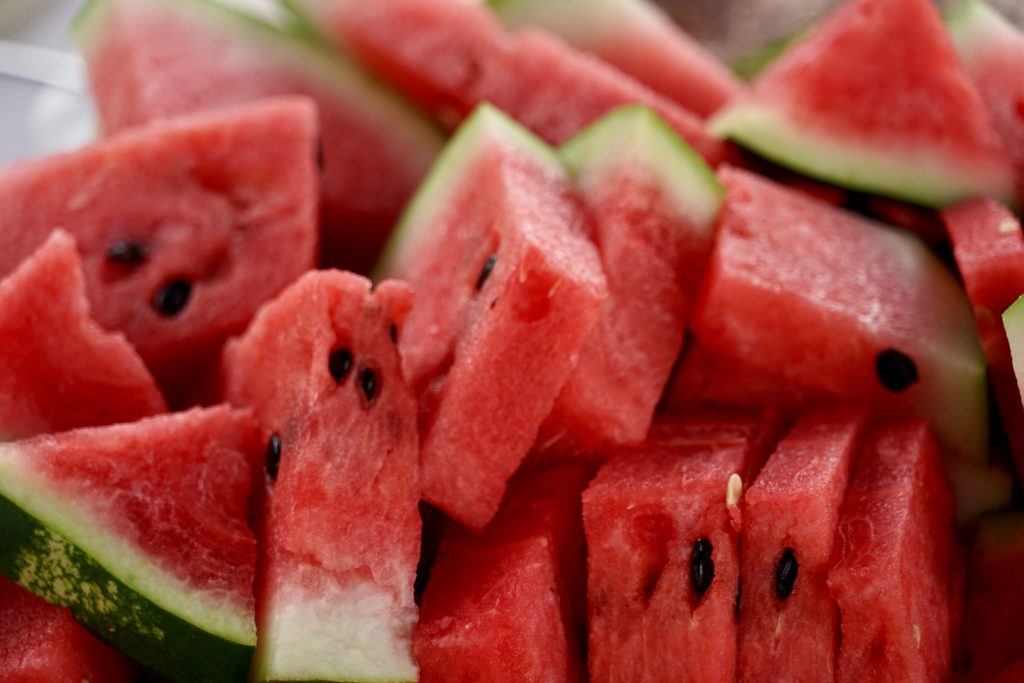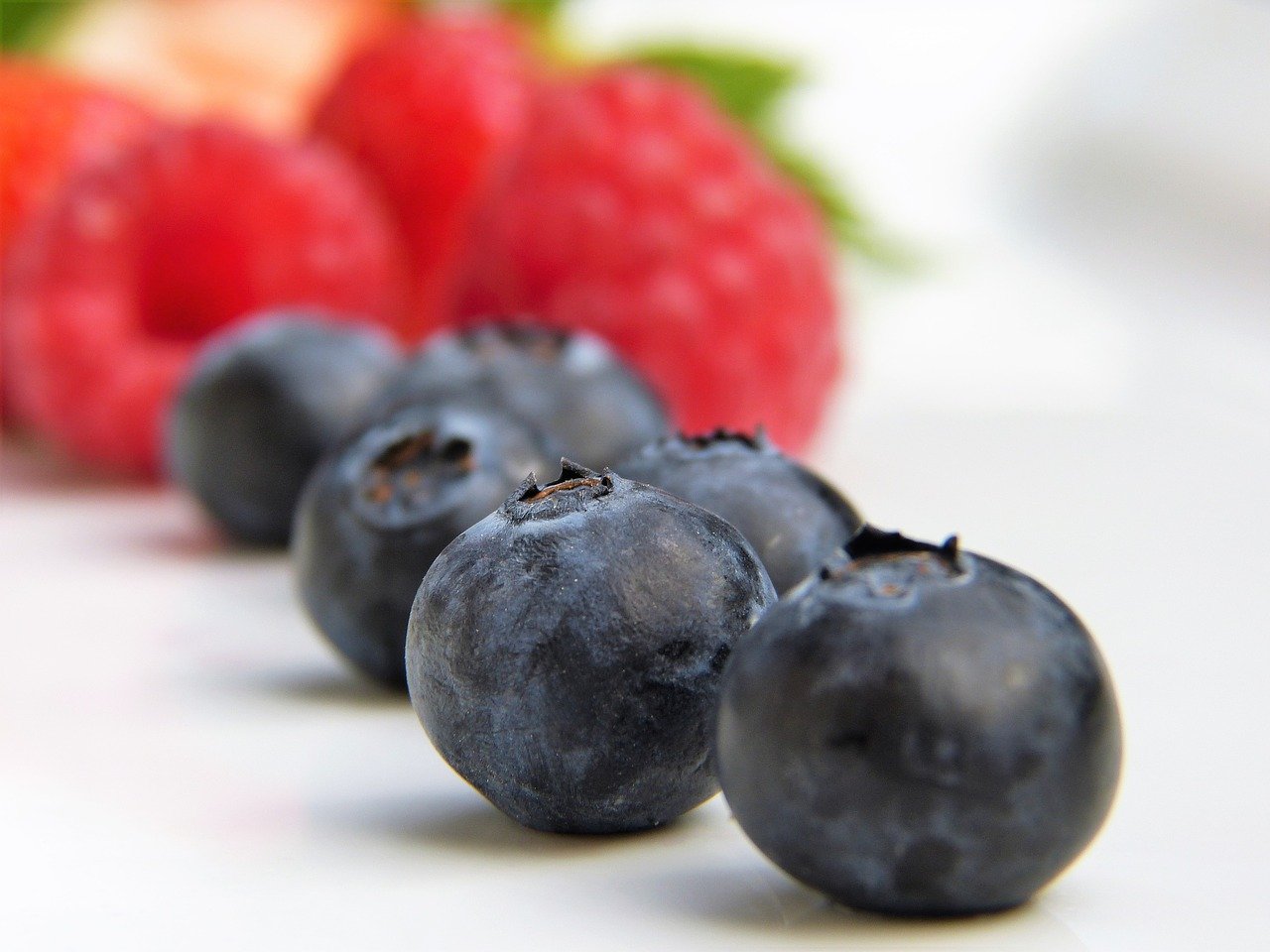A strong immune system is vital to maintaining health and well-being. Eating the right foods is one way of ensuring that it is adequately supported and ready to defend against infection.
By understanding what your immune system needs and why, you can make small changes to your diet to have a big impact on preparing your body’s defences. Foods like berries, broccoli, mushrooms, watermelon and ginger provide resources your body needs to protect itself effectively.
Each food provides support in a different way: some, top-up the levels of essential substances, others add extra protection, and all contribute to a healthy immune response.
Table of Contents
What is your immune system?
Your immune system is an incredibly complex system in the body made up of organs, tissues and cells. It controls the body’s response to things like germs, viruses and bacteria. By constantly monitoring what is going on in your body it can react quickly if an invader is identified.
It then tracks down the enemy and destroys it while also identifying what it is. This identification system allows your immune system to either trigger a familiar response if it is an enemy your body has encountered before, or start developing a new, specific response if it is under attack for the first time.
In this video, you will see an excellent explanation of how your immune system works:
What affects my immune system?
There is still a lot of ongoing research into the immune system, how it works and the things that can affect it. These are some of the main factors that can have an impact:
Your age
The effectiveness of your immune system can deteriorate as you age. It is still not known precisely why this happens. Some scientists suggest age causes the number of T cells in our body to reduce. T cells are cells that the immune system sends to fight infection; with less of them, they don’t do such a good job.
Other studies suggest that it is the initial response of the immune system that occurs more slowly. This gives the infection more time to take hold, and so it is harder to fight off.
Suffering from stress
When you’re stressed or anxious, your body produces certain hormones which scientists believe may reduce the number of fighting cells provided by your immune system. This then makes the whole system much less effective.

Being too stressed isn’t good for us in general so if you think this is an issue for you, check out One You Stress Less from the NHS to start thinking about how to make some changes.
Medical Conditions
Some medical conditions, known as immunodeficiency disorders, weaken the immune system. There are those you can be born with, and others you can get later in life. It is relatively rare to be born with such a condition, but examples of secondary disorders are:
- Cancers of the immune system
- AIDS
- Viral hepatitis
Anyone who has any of these conditions will be following a carefully prepared health plan from their doctors. If you are affected by these conditions or have concerns about your health, then speak to your GP for further advice.
What are the signs of a weak immune system?
If you are generally fit and healthy, you may notice from time to time that your immune system might be having a hard time.
Things to look out for are:
- Generally feeling a bit run down
- Being more susceptible to coughs and colds
- An unhappy digestive system – grumbly tummy, diarrhoea, cramps
Can you test your immune system?
If you are concerned about how well your immune system is functioning or the symptoms above are having a negative effect on your life, your doctor can assess your health. This will likely include a blood test to look at the levels of cells that your immune system produces.
How does what you eat impact your immune system?
There is some debate as to whether eating specific foods can have a direct impact on our immune system. The questions revolve around whether the foods or their properties, go straight to the immune system or whether these foods are just generally good for us.
Some believe that eating foods that help you maintain a good state of health must also support your immune system. The scientific jury still seems to be out on this, but the bottom line is that foods that are good for us, are also good for our ability to fight infection.
What are the best foods for a healthy immune system?
There has been a lot of research into foods that are good for us. These foods are the “must-haves” in a healthy diet, and are some are even known as superfoods.
A key feature of some superfoods is that they contain antioxidants. Antioxidants work in our bodies to prevent damage to vital cells, including those of the immune system. While the body does produce some antioxidants itself, scientists agree that eating foods high in antioxidants is important.
As things like age can reduce the efficiency of your immune system, so can they reduce levels of naturally produced antioxidants. Therefore, the extra in your diet can play a vital role in keeping your body’s defences working well.
Bearing all this in mind, we have come up with a list of foods that have been found to have strong links with a healthy immune system. This selection of foods combines a good range of vitamins, minerals and antioxidants to support your immune health in the best possible way, through a varied, balanced diet.
Berries
There is a lot of research that suggests that berries are an excellent food group to include in our diets and are particularly useful when eaten fresh and in season. Rich in vitamins and antioxidants, berries such as blueberries, strawberries and blackberries, in particular, can help support the immune system.
Some initial studies show that a compound found in blueberries might also help boost the production of a gene in our bodies that can make bacteria-fighting cells.
Pros
- Rich in antioxidants and vitamins
- Blueberries may help support the production of bacteria-fighting cells
- Great as seasonal produce and can be blended into smoothies or eaten straight from the bowl
Cons
- Further research needed to confirm the additional benefits of blueberries, but their vitamin and antioxidant credentials make them a firm favourite.
- They can be on the expensive side if you are sticking to a budget.
Broccoli
Often a fridge staple and full of vitamins A and C, broccoli is a good all-rounder. It is also full of fibre which can help keep your gut in good health as well as having antioxidants to support the work of the immune system. Lightly steaming broccoli, or eating it raw is the best way to get at all that goodness.

Pros
- Supports your digestive health as well as your immune system.
- An inexpensive vegetable and easy to find in shops.
Cons
- Some people struggle to enjoy it and prefer not to include it in meals.
Mushrooms
This one might seem surprising, but mushrooms are a great source of several important nutrients for our immune defences:
- Selenium – This is a mineral. It acts as an antioxidant in the body but is also vital for the proper functioning of the thyroid glands. If the thyroid glands stop working certain diseases can develop, which in themselves damage the immune system.
- B vitamins – B vitamins are necessary for immune health as they can help fight off infection as well as being used in cell construction.
- Zinc – Zinc is used by the immune system to build the cells that fight infection, so it is essential to have sufficient levels in our diet. If you fancy a more exotic option for your zinc, try oysters!
Pros
- Mushrooms also give you a good supply of B vitamins and zinc that are needed for building immune system cells.
- They also support the proper functioning of the thyroid glands.
Cons
- If mushrooms are not to your taste, the more exotic option for zinc is a bit more expensive!
Watermelon
Watermelon is a great refreshing snack on a hot day because it has high water content. It’s worth adding to your diet, especially if your immune system might be in need of a boost. When ripe, the juicy red flesh of a watermelon contains high amounts of glutathione.

Glutathione is an antioxidant that is already produced in our bodies. However, levels can reduce as you age or when your immune system is overworked. Eating this fruit can help give your immune system an extra top-up of protection.
Pros
- A particularly useful option to remember as you get older as research suggests that natural levels of glutathione reduce as we age.
- Watermelon is also great for topping up hydration levels because of its high water content.
Cons
- Sometimes it is only available as a seasonal fruit.
Ginger
Ginger has been used for centuries in traditional Chinese medicine and is now often associated with treatments for the digestive system. It can help to soothe an upset stomach, ease nausea and sickness and even improve the overall health of your gut.
The fresh root of ginger is full of antioxidants, and so is good support for your natural defences. Fresh ginger is proven to be the best way to get the most out of this natural resource but is incredibly versatile to suit your taste. Research also suggests that it may even help our bodies fight against viruses.
Pros
- A very versatile root, you can enjoy ginger in a stir fry, baked into biscuits or even brewed into a tea.
- Ginger can also help ease nausea and sickness associated with pregnancy.
Cons
- Ginger powder does not have the same benefits as fresh root ginger.
- The intense flavour and heat of ginger are not to everyone’s taste, but it is worth finding a way to get it into your diet if you can.
How else can I support my immune system?
As well as using foods to support your immune system, there are other things you can try:

Take high-quality supplements
Sometimes low levels of certain vitamins or minerals in your body can make you more susceptible to illness. Taking a regular multivitamin supplement can make sure those levels are topped up. If you are particularly focusing on supporting your immune system, here are a few it is particularly beneficial to include:
- Vitamin D – studies show that people with low levels of vitamin D can be more likely to get colds or the flu.
- Vitamin C – this is often the go-to vitamin. It is not entirely clear how vitamin C supports the immune system, but it can shorten the duration of common cold symptoms.
Related reading: Best vitamin D supplements UK.
Follow a healthy lifestyle
As well as eating a healthy diet and including some great foods for your immune system, following the principles of a healthy lifestyle can also support your body’s defences.
- Don’t smoke
- Destress
- Take regular exercise
Conclusion
Understanding how your immune system works can help you look after it. After all, it looks after you! By following the basic principles of a healthy lifestyle, you can go a long way to ensuring the health of your whole body.
The key to this is to maintain a healthy diet. If you want to give your immune system that extra bit of support, you should consider including the listed foods in your diet.
My Supplement Recommendations
These are products that I currently use and enthusiastically recommend:
Multivitamin – Nutrigenesis Multi for Men or Nutrigenesis for Women. Performance Lab use their patented Nutrigenesis technique to provide a range of vitamins and minerals in their most effective form. Read my review.
Nootropic – Mind Lab Pro contains eleven natural nootropics that have been proven to support cognitive function and brain health. Read my review.
Collagen – Edible Health Bovine Collagen. This excellent bovine collagen powder is completely tasteless and absorbs quickly into any liquid. It’s third-party lab tested and provides 13g of collagen per serving. Read my review.
Turmeric – VitaBright Organic Turmeric with Ginger and Black Pepper. These turmeric capsules are organic, effective and affordable. They include black pepper to enhance curcumin absorption and ginger to provide additional useful benefits. Read my review.
Incredible value – G&G Vitamin 28 day packs This is the most affordable way to buy supplements in the UK. One tub holds 28 daily packs of up to 11 different vitamins, minerals or food supplements.

